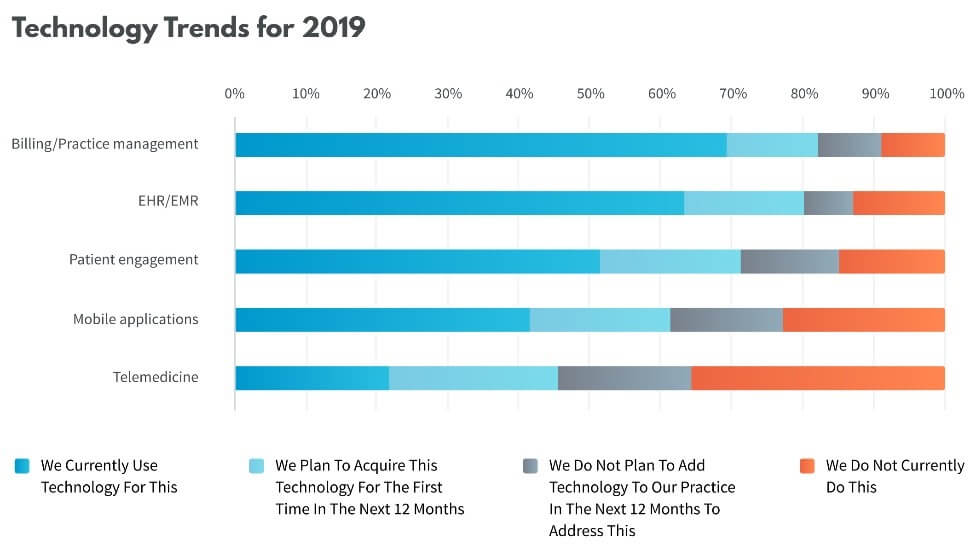Oct 30
2019
New Study of Independent Medical Practices Reveals Love/Hate Relationship with Technology
By Aaron Perreira, director of integrated marketing, Kareo.
Over 70% of independent medical practices agree that the time demands of electronic health records (EHR) data entry detracts from care delivery. Simultaneously, 69% of independent practices state that integrated technology solutions are needed to improve the efficiency and profitability of their practices. This interesting “love/hate” relationship between independent practitioners and technology was shared in the recent 2019 State of the Independent Practice Industry Report, published by Kareo, a cloud-based medical software company.
The report was based on a nationwide survey designed to uncover the current challenges and expectations of independent practitioners in several areas of their practices, including care delivery, billing, patient engagement and regulatory compliance. Attitudes regarding the role of technology emerged in each of the areas surveyed.
 Providers are increasingly reliant on their EHRs to manage their day-to-day clinical operations and maintain regulatory compliance. For many practices, the use of EHRs began when the Health Information Technology for Economic and Clinical Health (HITECH) Act of 2009 was signed into law by President Obama on February 17, 2009. The HITECH Act was created to motivate the implementation of electronic health records by providing monetary incentives for being able to demonstrate meaningful use of electronic health records.
Providers are increasingly reliant on their EHRs to manage their day-to-day clinical operations and maintain regulatory compliance. For many practices, the use of EHRs began when the Health Information Technology for Economic and Clinical Health (HITECH) Act of 2009 was signed into law by President Obama on February 17, 2009. The HITECH Act was created to motivate the implementation of electronic health records by providing monetary incentives for being able to demonstrate meaningful use of electronic health records.
At that time, the market was flooded with more than 700 EHR vendors looking to capitalize on the EHR gold rush. Many practices adopted EHRs at that time, however since then, as the regulatory standards and consumer requirements for EHR technology continued to evolve, an increasing number of software providers have failed to keep up with technology and have fallen out of the race. This has left many providers tethered to antiquated, ineffective systems. More established practices (in practice for 10 or more years) appear to be more gun shy in that they likely adopted their EHR several years ago and had to suffer through poor implementations of costly but under-performing software that didn’t deliver on the value that was promised.
Despite government mandate, penalties and incentives, only 64% of respondents are currently using an EHR today. This low figure likely represents both the entry of newer practices that haven’t yet implemented their EHR platform and the fact that some practice specialties such as mental health, are more likely to still be using paper-based records and haven’t made the switch to electronic records.